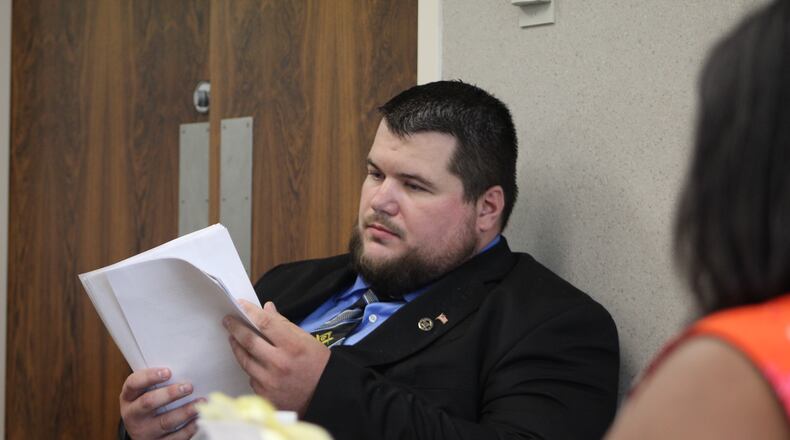The board concluded that the city had a “long-standing culture and practice” of maintaining scrap metal cash funds, which multiple city officials previously denied.
RELATED: Conflicting evidence: Did Dayton workers have off-book cash funds?
Dayton employees at many levels of authority, with many years of service, took part in the sale of excess materials at recycling centers for cash, and the city failed to end the practice despite it being a problem in the past, the board ruled.
Closing arguments in Shaver’s dismissal hearing took place last month after multiple days of testimony.
Shaver was fired last year after a police investigation into an October incident in which city employee William Landis allegedly sold scrap metal at First Street Recycling.
Landis was investigated and faced criminal charges for theft in office, but he was placed in a diversion program and retired as part of a separation agreement with the city.
Shaver was present at the time of the sale but denied receiving any of the cash and said he just accompanied his supervisor to the recycling center.
RELATED: Two city employees out after scrap-metal sales probe
Shaver’s attorney, David Duwel, argued that multiple city departments and supervisors had de facto petty cash funds from scrap metal sales that they used to pay for work-related purchases.
“Why the heck would (my client) think that this was something that was wrong — that he needed to turn his boss in on — even when his division manager is allowing it to go on?” Duwel said.
Duwel’s argument was bolstered by the testimony of a former city of Dayton contractor who said he attended an employee barbecue that he was told was paid for with cash from scrap metal sales.
Former city employee Romona Carver also testified at Shaver’s dismissal hearing that she heard about a small cash fund kept in the plumber’s shop when she moved over to the facilities division.
Shaver testified that Landis, who at one point was his supervisor, and other supervisors kept small cash funds from the sale of city-owned scrap metal that were used to pay for items including a new microwave, refrigerator, tools, equipment and other work-related items.
The Civil Service Board said the evidence that city employees routinely sold leftover scrap material for cash was convincing.
Testimony indicated that the city tried to eliminate the practice in 2008, but it continued on afterward and the city was aware or should have been aware of it, according to the board’s order.
Though the city initiated investigations and criminal charges against some employees who sold scrap materials without authorization, the city did not formulate precise rules with precise examples to effectively end the practice, the board said.
RELATED: Conflicting testimony: Did Dayton workers have off-the-books cash funds?
During the dismissal hearing, some city of Dayton officials — including a department director, a supervisor and the assistant city manager — rejected the idea that departments were permitted to keep off-the-books cash funds and condemned the idea that employees would not report the inappropriate activity.
During rebuttal testimony, the city’s director of central services Pete Hager said Carver’s testimony was stunning and she would face discipline if she were not already retired.
RELATED: Contractor: Dayton used scrap-metal money for barbecues, equipment
“My reaction to that news is that I’d like to see her somewhere as well regarding this issue, in terms of discipline, in terms of accountability,” Hager said.
City policy is clear on how scrap metal should be recycled and what should be done with the money, and past employees were fired and faced other consequences for inappropriately taking city-owned materials, said Norma Dickens, senior attorney with the city of Dayton.
About the Author

